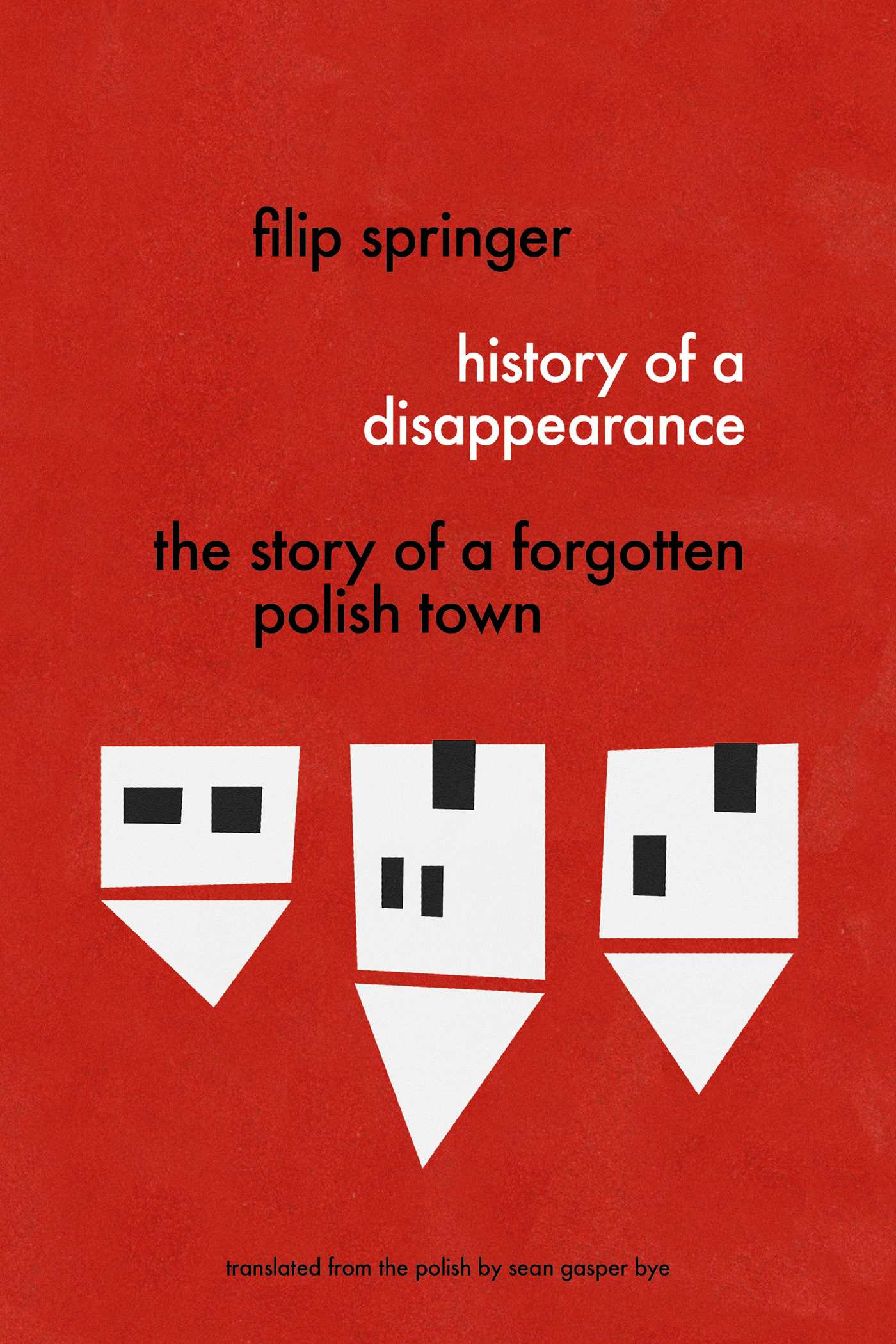In November, National Book Critics Circle members will begin nominating and voting for the John Leonard award for the first book in any genre that has been published in the US in 2017. In the run-up to the first round of voting, we'll be posting a series of #NBCCLeonard reviews on promising first books.
The John Leonard Prize is our annual award based on member nominations and chosen by a panel of member volunteers. Named for the longtime critic and NBCC co-founder, John Leonard, the prize is awarded for the best first book in any genre. Previous winners include: Anthony Marra’s A Constellation of Vital Phenomena (2013), Phil Klay's Redeployment (2014), Kristin Valdez Quade’s Night at the Fiestas (2015), and Yaa Gyasi’s Homegoing (2016).
 History of a Disappearance: The Story of a Forgotten Polish Town by Filip Springer; Translated by Sean Bye. (Restless Books). Reviewed by Katherine A. Powers for The Barnes and Noble Review.
History of a Disappearance: The Story of a Forgotten Polish Town by Filip Springer; Translated by Sean Bye. (Restless Books). Reviewed by Katherine A. Powers for The Barnes and Noble Review.
Until Filip Springer’s History of a Disappearance: The Story of a Forgotten Polish Town came into the house a few weeks ago, I had never heard of Miedzianka. The little mountain town was in Lower Silesia, a region that has over the centuries been part of Poland, Bohemia, the Hapsburg Monarchy, Prussia, Germany (German Empire, Weimar Republic, and Third Reich), and Poland again. Today, Miedzianka is still in Poland, but it would exist only in the memories of its increasingly few former inhabitants, were it not for Filip Springer, a young “self-taught journalist.” With persistence that may amount to obsession, he has recovered the story of the town’s life and times and chronicled the melancholy history of its several disappearances. In a nice tactical move, he has set the place and its people before us in the present tense, an approach that has truly taken distance out of the past.
Miedzianka, called Kupferberg until 1945, has its roots in a medieval mountain settlement named Cuprifodina and owes its existence to mining, first for silver and copper, later for other elements that would come to obsess the modern world. The hectic proliferation of tunnels, drifts, and galleries beneath the ground has been one agent of the town’s disappearance, as, over time, portions of it have simply vanished into sinkholes. But there were other forces at work: war, fire, pestilence, and the cartographer’s pen.

